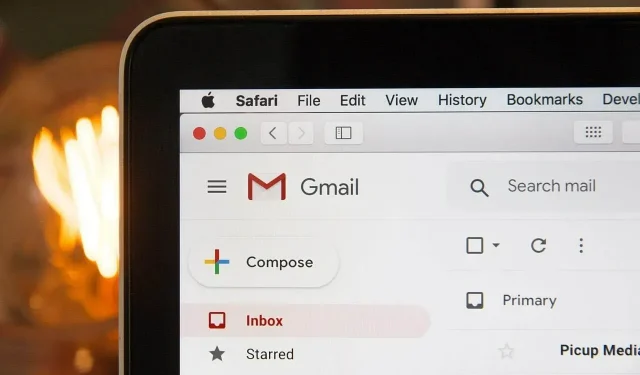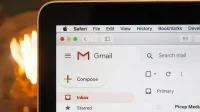If your Google account has run out of storage space, you can back up your Gmail email locally. Here’s how to do it, and it’s easy to read them.
Like any Internet veteran, I have had a Google account for a long time. Over ten years. I’m running out of 15 GB of free storage and most of that storage is used by Gmail. If most of the emails are spam, some of them are important, I don’t want to delete them by accident, but it would take me too long to clean up manually. If you recognize yourself in this description, here’s what you need to do: download your emails to your computer.
There are two steps to manage your Gmail backup. First, of course, you have to download posts from Google, but that doesn’t stop there. Google sends you files in. mbox which cannot be read by any application on your computer. But don’t panic.
How to download Gmail email?
Google makes it very easy. Go to Google, click on your profile icon and select Manage Google Account. Then select Data & Privacy, then scroll down to Upload or delete your data.
By clicking “Upload your data”, you can choose from 50 types of data, including data from your calendar, Chrome, contacts, Drive, Google Photos, etc. Check whatever you want, but in this article we will focus on “Sharing messages.”
Then scroll down the page, click “Next step”. There, select the destination (by default, email) and the frequency of the export. If you only want to do this once, leave the “Export once”box checked. You can leave the rest as default, then click Create Export.
Now you need to wait for Google to process the operation and let you know when the result is ready. If you have selected the “by email”option, your export will be available in your mailbox. Download it to your computer. Feel free to move these folders, for example to a brand new folder called “My Gmail Backup”.
How to read saved emails
Now that your emails are saved on your computer, you still need to be able to read them. Unfortunately, these messages cannot be used as plain text files because they are files. mbox. Luckily, there is an app for that.
And this application is none other than Mozilla Thunderbird, an open source email client that will allow you to search and read your archives. To get started, download and install the app. Sign in with an email account and skip settings.
In the app, go to Files (Mac) or Menu (Windows) and click New > Account. Give it a name and customize it. Thunderbird will automatically redirect you to this account. Click “Account Settings”then “Search”next to “Local Folder”. This option allows you to select the folder containing the files. mbox. Select your Gmail backup folder and click “Choose Folder”. Restart Thunderbird when prompted.
When the app restarts, it may take a while for your emails to load, especially if you have a lot of them, but once that’s done, you’ll be able to view all your messages as you normally would, if not, they’re stored on your computer. If you want to delete your emails from Gmail, feel free to make a second backup and save it somewhere else.


